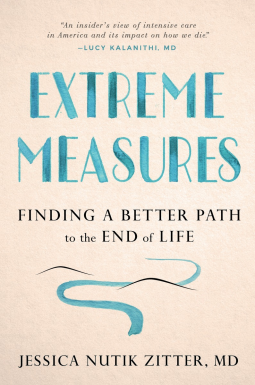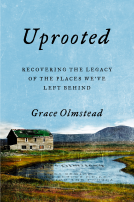
Extreme Measures
Finding a Better Path to the End of Life
by Dr. Jessica Nutik Zitter, M.D.
This title was previously available on NetGalley and is now archived.
Send NetGalley books directly to your Kindle or Kindle app
1
To read on a Kindle or Kindle app, please add kindle@netgalley.com as an approved email address to receive files in your Amazon account. Click here for step-by-step instructions.
2
Also find your Kindle email address within your Amazon account, and enter it here.
Pub Date Feb 21 2017 | Archive Date Feb 08 2019
PENGUIN GROUP Avery | Avery
Description
In medical school, no one teaches you how to let a patient die.
Jessica Zitter became a doctor because she wanted to be a hero. She elected to specialize in critical care—to become an ICU physician—and imagined herself swooping in to rescue patients from the brink of death. But then during her first code she found herself cracking the ribs of a patient so old and frail it was unimaginable he would ever come back to life. She began to question her choice.
Extreme Measures charts Zitter’s journey from wanting to be one kind of hero to becoming another—a doctor who prioritizes the patient’s values and preferences in an environment where the default choice is the extreme use of technology. In our current medical culture, the old and the ill are put on what she terms the End-of-Life Conveyor belt. They are intubated, catheterized, and even shelved away in care facilities to suffer their final days alone, confused, and often in pain. In her work Zitter has learned what patients fear more than death itself: the prospect of dying badly. She builds bridges between patients and caregivers, formulates plans to allay patients’ pain and anxiety, and enlists the support of loved ones so that life can end well, even beautifully.
Filled with rich patient stories that make a compelling medical narrative, Extreme Measures enlarges the national conversation as it thoughtfully and compassionately examines an experience that defines being human.
Available Editions
| EDITION | Other Format |
| ISBN | 9781101982556 |
| PRICE | $27.00 (USD) |
| PAGES | 352 |
Average rating from 5 members
Featured Reviews
"This book is about how our collective tendency to ignore death, doctor and patient alike, fuels a tremendous amount of suffering. And about how we can move forward from this place. I hope that by being as honest as possible about my own shortcomings as well as my changes in thinking along the way, readers will see that we are in the midst of a paradigm shift. None of us has yet ‘arrived.’ One of my palliative care colleagues said to me recently, ‘The only reform that comes is from confession.’"
No matter your age or health condition, talking about death is hard; there never seems to be a "good time" to bring up the topic, as it merely serves to remind each of us of our own mortality. Yet it is, quite possibly, one of the most important, significant conversations you will ever have and I encourage (okay, I've been known to nag) everyone to seek out resources and guidance in an effort to GET IT DONE.
"This directive, ‘I want you to do everything, Doc,’ often ends the conversation between doctors and desperate ICU patients. We’ve got a lot of ‘everything’ to offer, and the patient’s words are considered gold. [...] When patients push for ‘doing everything’ in the face of no significant medical benefit, we must give them more time, more opportunities to process their shock and emotional distress about death."
Thanks to my experience in this setting I can tell you, with confidence, that there are many things human beings endure during an illness, a hospitalization, that are far worse than death. As an advocate of appropriate palliative care and end-of-life decision-making discussions, my goal is never to diminish the feelings, the emotional toll, of families; instead, I attempt to help them work through their feelings and begin to recognize what is truly best for their loved one.
Dr. Zitter has provided an amazing resource for readers both within and outside the healthcare field; by sharing her own experiences, the stories that she has gathered, she illuminates some of the most difficult situations and the impact on all of the parties involved. This book is not filled with medical jargon, biased commentary, or sad reflections; it is an insightful look into the unknown world of emergency and intensive medicine and the way in which the capabilities, as they have expanded, have increased the need for better communication.
"In order to rebuild this broken system, we must begin by facing our fear of personal extinction, and the resultant drive to find something, anything, to save us from our own deaths."
Those of you who have personal experience with these situations, via family members and loved ones, will relate, but I believe that there are connections to be found by all of us; I highly recommend this book and hope it will encourage you to work toward a conversation about what you would want if/when you are no longer able to express your wishes.





